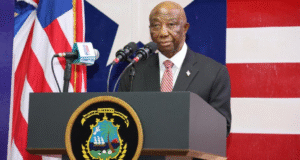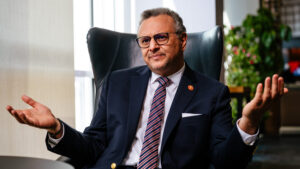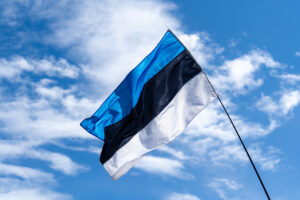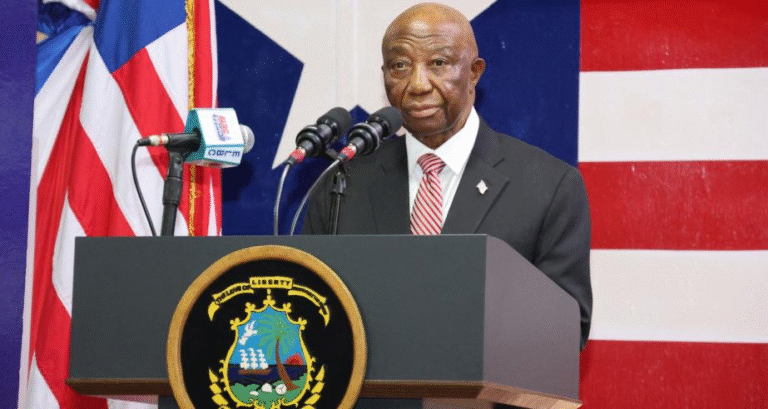By Nicole Sheringh
On July 7, 2025, U.S. Secretary of State Marco Rubio made headlines with a statement that caught many by surprise: the United States is officially revoking the Foreign Terrorist Organization (FTO) designation of Hay’at Tahrir al-Sham (HTS), formerly known as the al-Nusrah Front. This follows the group’s reported dissolution and comes on the heels of the June 30 Executive Order that begins lifting long-standing U.S. sanctions on Syria.
These announcements mark a seismic shift in the geopolitics of the Middle East. For over a decade, Syria has been synonymous with war, destruction, and isolation. But under the leadership of newly-installed President Ahmed al-Sharaa, Syria is trying to turn the page. The U.S. seems willing to let them try.
The question is: What does this mean for Africa?
From Battleground to Building Ground
Africa knows something about rebuilding. From post-genocide Rwanda to post-apartheid South Africa, the continent has walked the road from rubble to recovery many times. And now, with Syria slowly being welcomed back into the international community, Africa has a chance to play a meaningful role—if it chooses to.
Syria needs roads, hospitals, schools, electricity grids, and telecommunications infrastructure. Its economy, devastated by years of war and sanctions, is a blank canvas for serious, long-term investment. African nations with growing construction sectors—like Egypt, Morocco, and Nigeria—could find space to offer technical expertise, manpower, and even joint ventures in reconstruction.
This is not about charity. It’s about opportunity. If Africa can position itself as a partner—not a competitor—in Syria’s recovery, it could unlock mutual trade, shared development models, and diplomatic capital.
Rethinking African Foreign Policy
Historically, Africa has had limited influence in Middle Eastern affairs. But perhaps that can change. As the global order shifts and former enemies become partners, Africa should be thinking not just about aid and loans from the West, but about regional alliances that reflect shared experiences and ambitions.
The African Union could begin formal diplomatic outreach to the Syrian government under al-Sharaa, opening the door for collaboration in areas such as:
Counterterrorism training and knowledge exchange
Medical and educational partnerships
Joint forums on post-conflict governance and transitional justice
Investment in agriculture, mining, and light manufacturing
Countries like Algeria, Egypt, and Sudan—who already have historical and cultural ties with Syria—can lead this charge, helping to build a bridge between the Arab world and the rest of Africa.
But Proceed with Caution
This moment, while promising, is not without risk.
The internal dynamics in Syria are still fragile. HTS’s so-called dissolution may not mean an end to extremism. There are still unresolved ethnic tensions, displaced populations, and questions around transitional justice. Any African engagement must be thoughtful, measured, and focused on long-term sustainability—not quick wins.
And then there is the geopolitical chessboard. With Russia, Iran, the U.S., and Turkey all deeply involved in Syrian affairs, African nations must be careful not to become pawns in a new regional rivalry. Sovereignty must remain front and center.
What’s In It for Africa?
So what does Africa truly gain from a functioning Syria?
Access to a new trade partner on the Mediterranean with logistical access to Europe, the Levant, and Central Asia.
A potential platform for African contractors and service providers to enter Middle Eastern markets through Syria’s rebuilding efforts.
An ally in global diplomatic spaces where emerging nations need to support each other to rebalance long-standing Western dominance.
A chance to shape post-war recovery dialogue, bringing African models of reconciliation, peacebuilding, and resilience to the global stage.
This is not a time for Africa to watch from the sidelines. The lifting of sanctions on Syria is not just about one country. It’s about how the world is changing—and whether Africa wants to help shape that change or be shaped by it.
Africa must engage—not just to help Syria, but to show that it understands the interconnectedness of today’s world. Peace in the Middle East is peace in the Horn of Africa. Economic revival in Damascus could mean new corridors of opportunity in Dar es Salaam, Dakar, or Durban.
The path ahead for Syria is uncertain, but where there is rebuilding, there is room for partnership. Africa must walk through that door—not with hesitation, but with confidence and purpose.






